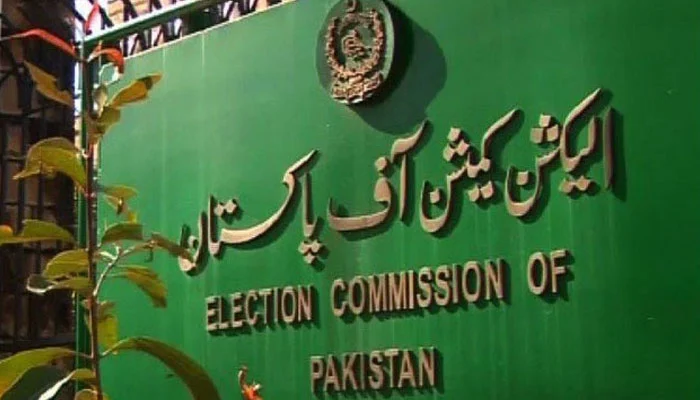The Election Commission of Pakistan has postponed the hearing of the case regarding the transfer of election tribunals for three constituencies in Islamabad until October 9.
A three-member bench of the Election Commission, headed by member Nisar Durani, conducted the hearing. PML-N leaders Anjum Aqeel, Tariq Fazal Chaudhry, Khurram Nawaz, and Shoaib Shaheen’s associate lawyer appeared before the commission, while no representatives from Ali Bukhari and Amir Mughal’s side were present.
Shoaib Shaheen’s associate lawyer informed the commission that he had traveled six kilometers, facing obstacles along the way, and had been searched at 13 different locations.
Anjum Aqeel’s lawyer stated that Amir Mughal was supposed to submit a response to their supplementary application today but did not appear, while Tariq Fazal Chaudhry’s lawyer mentioned that they had submitted a supplementary application requiring a response today.
Regarding the transfer of the election tribunal for the three Islamabad constituencies, the original records were requested.
Shoaib Shaheen’s associate lawyer explained to the court that it felt like a curfew outside, making it impossible for anyone to enter, so how could Shoaib Shaheen come?
Khurram Nawaz’s lawyer responded that they had made it to the court, and they did not claim there was a curfew outside; they also endured difficulties to be present.
A commission member noted that Shoaib Shaheen was supposed to submit a response and provide copies to the petitioners.
Shoaib Shaheen’s associate lawyer then raised his voice, stating that they would submit a response before the next hearing.
The commission member warned him that if he did not submit the response by the next hearing, they would forfeit that right, as they frequently changed lawyers.
Shoaib Shaheen’s associate lawyer informed the court that Shoaib Shaheen came with 13 lawyers and that attendance was not recorded for anyone last time, asking the commission to ensure their attendance was noted.
The commission member cautioned the associate lawyer to speak in a lower tone, explaining that only one lawyer’s attendance is recorded, not everyone’s. The purpose of recording attendance is not for monetary gain.
The member directed him, emphasizing that there is a manner and dignity in how one speaks. He advised the associate lawyer to present himself as a lawyer rather than a party worker and to improve his demeanor, or else he would face significant difficulties moving forward.



